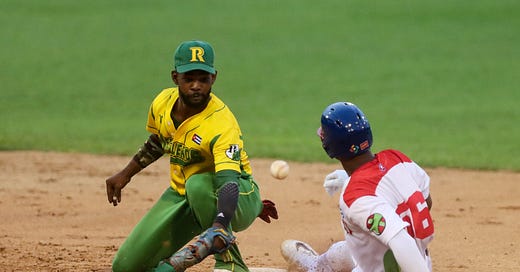Game 3: Power and determination
The Vegueros of Pinar del Río cannot lose again if they want to maintain their aspirations of being crowned champions. On the other hand, the Las Tunas Leñadores are one success away from glory.
There is one statistic by which we could define the success of the Las Tunas Leñadores since they became postseason contenders: they have been the team (qualified with at least 50 playoff games) that has recorded the highest winning percentage when scoring at minus five races.
The 6% difference over Santiago de Cuba is the largest of any team in the Top-…



